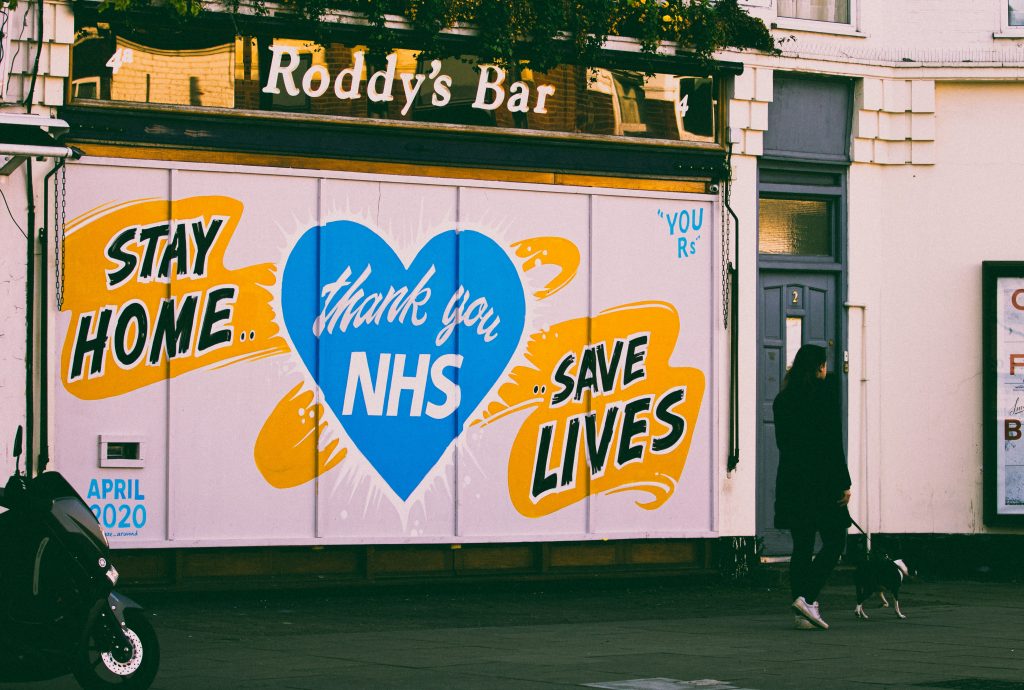Poppy Stowell-Evans on how to make the new normal significantly more desirable than the old normal – and significantly more equal.
Inequality is not a new element of society. For hundreds of years minority groups have faced discrimination as a consequence of uniformed misconceptions and prejudice.
As a result of this, there is no doubt to me that an unwillingness to acknowledge how deeply these misconceptions run exists.
This has caused many aspects of our society to become engraved with a stubborn inequality. Unfortunately, it seems from my perspective that we have become so acclimatised to it we are no longer able to see what needs to be addressed, to recognise it and therefore fix it.
If we were able to do this, this would allow an even playing field, not just in Wales, the UK, but internationally – we would be able to appreciate the true meaning of equality.
BAME people, women, those who are less economically active, and so many more would be able to flourish in a way that has been massively restricted both due to our selective blindness and a choice to not (perhaps subconsciously) acknowledge or change this everyday inequality.
I find this element of our society incredibly frustrating. Rather than addressing issues we choose to sit back and allow them to be considered “normal”, “a part of life”, “out of our control.”
This allows the spark of outdated mindsets to live on for generations. It allows the fire of ‘subtle’ inequality to continue to roar and oppress people.
Granted – we have come a long way in the UK but there is still massive room for improvement.
The Covid-19 pandemic has magnified an extraordinary amount of flaws in the foundations of our society that may have gone unrecognised in ‘normal’ life.
These strange circumstances have provided the opportunity for us to open our eyes to issues like climate change, gender inequality and immigration policies. And now, it is our duty to see them willingly and move forward with a conviction to change.
In a previous article, I described the virus as “indiscriminate”, to some extent this statement is true- the virus does not consciously choose who it will infect based on prejudice, however, because of discriminatory social structures and normalities, the virus has affected people quite disproportionately.
Whilst the science currently indicates that men are more likely to be infected and die from the virus (obesity and biological differences have been cited as the potential factors for this), women are disproportionately affected by other negative impacts of this virus -afterall, there are more effects of this virus than just the physical illness.
Arguably these impacted elements are caused, and I’d even go so far as to be allowed by society. For example,on an international level, women’s health care is being pushed aside and not prioritised as it should be.
With Southern states in America considering abortions as non-essential health, women in those states who need an abortion are forced to travel to neighbouring states, increasing the risk of both spreading and becoming infected by the virus.
Additionally, in China 90% of health care workers are women meaning they were significantly more likely to find themselves in a position where they are exposed to the virus.
Unsurprisingly, there is also disparity in Britain,with 77% of high risk workers being women. Whilst the pandemic has highlighted the importance of care workers, it is more than concerning that 98% of key workers who live below the poverty line are women.
There is no doubt that ‘clapping for our keyworkers’ shows our gratitude, and is a thoughtful gesture. But, I’m sure earning a deserving amount of money would show how grateful we actually are.
As a nation, we also must never forget the contribution of migrants during our time of need as one fifth of care workers are migrants who selflessly risk their lives everyday to save the lives of others.
We must also remember that migrants can’t claim social security with a non- EU visa and those who pay twice for the NHS through taxes and the immigration health surcharge at the moment.
Even the health care workers.
But, the list of inequality doesn’t stop there. BAME workers are more than a third more likely to be in care work then white workers, with black men being approximately 300% more likely to work in care then white men. This means they are potentially a third more likely to be in a situation where they could contract the virus.
Unfortunately, but potentially not surprisingly, BAME people make up 34% of all confirmed Coronavirus cases in the UK, and 32% of deaths in intensive care despite only making up 14.5% of the population.
While these statistics may seem like an unfortunate luck of the draw, we must as a nation begin to question why this is happening.
But more importantly, what can we do to tackle and minimise this inequality? Are there other aspects of society, other aspects of our life, other reasons for the disproportionate effect of this pandemic that we are blind to? Why haven’t we opened our eyes yet? What is stopping us?
These questions will take time to answer and the answers may be uncomfortable- but we have to face them. Otherwise we will continue spiraling down this slippery slope of inequality, stuck in a conditioned mindset, wearing blinkers.
The tragedies of this pandemic will be unmatched in our lifetime (hopefully), we can take this opportunity to make life better for everyone afterward – to make the new normal significantly more desirable than the old normal – and significantly more equal.
There is no doubt that everyone is going through the same storm however, it is certainly in different boats.





